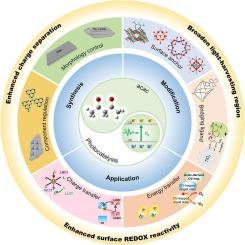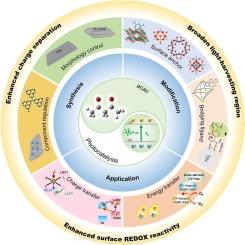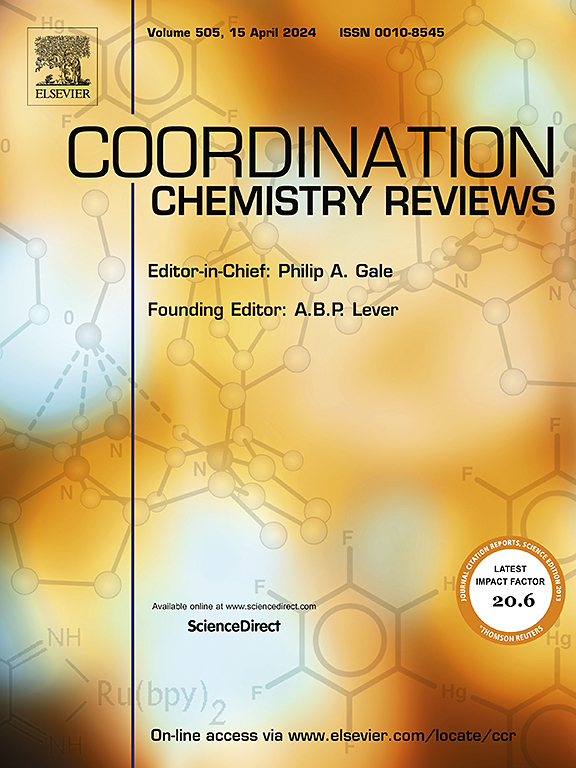β-二酮及其衍生物在光催化剂设计中的作用
IF 20.3
1区 化学
Q1 CHEMISTRY, INORGANIC & NUCLEAR
引用次数: 0
摘要
有机配体在光催化剂的合成和改性过程中发挥着举足轻重的作用。以乙酰丙酮(acac)为代表的小分子二酮是一类前景广阔的配体。然而,目前尚未对它们在光催化中的作用进行全面研究。这一空白阻碍了使用二酮作为功能配体来合理设计和应用光催化剂。因此,对这一主题进行全面研究势在必行。本综述从四个方面批判性地总结了金合欢在光催化中的应用:金合欢的化学性质和反应性、金合欢在光催化剂(尤其是众所周知的 TiO2)的合成和改性中的作用、金合欢对光催化过程的影响以及金合欢介导的光催化的现有挑战和未来前景。通过对金合欢酸在光催化中的成熟应用进行批判性分析,我们旨在激发该领域在基本理论原则基础上的进一步发展。本文章由计算机程序翻译,如有差异,请以英文原文为准。


The roles of β-diketones and their derivatives in the design of photocatalysts
Organic ligands play pivotal roles in the synthesis and modification of photocatalysts. Small molecular diketones, exemplified by acetylacetone (acac), are a promising class of ligands. Nevertheless, a comprehensive review of their roles in photocatalysis has not yet been conducted. This gap hinders the rational design and application of photocatalysts by using diketones as functional ligands. It is therefore imperative to provide a comprehensive examination of this topic. This review critically summarizes the utilization of acac in photocatalysis from four aspects: the chemical nature and reactivity of acac, the roles of acac in the synthesis and modification of photocatalysts (especially the well-known TiO2), its influence on the photocatalytic processes, and the existing challenges and future prospects for acac-mediated photocatalysis. By providing a critical analysis of the established applications of acac in photocatalysis, we aim to inspire further advancements in the field rooted in fundamental theoretical principles.
求助全文
通过发布文献求助,成功后即可免费获取论文全文。
去求助
来源期刊

Coordination Chemistry Reviews
化学-无机化学与核化学
CiteScore
34.30
自引率
5.30%
发文量
457
审稿时长
54 days
期刊介绍:
Coordination Chemistry Reviews offers rapid publication of review articles on current and significant topics in coordination chemistry, encompassing organometallic, supramolecular, theoretical, and bioinorganic chemistry. It also covers catalysis, materials chemistry, and metal-organic frameworks from a coordination chemistry perspective. Reviews summarize recent developments or discuss specific techniques, welcoming contributions from both established and emerging researchers.
The journal releases special issues on timely subjects, including those featuring contributions from specific regions or conferences. Occasional full-length book articles are also featured. Additionally, special volumes cover annual reviews of main group chemistry, transition metal group chemistry, and organometallic chemistry. These comprehensive reviews are vital resources for those engaged in coordination chemistry, further establishing Coordination Chemistry Reviews as a hub for insightful surveys in inorganic and physical inorganic chemistry.
 求助内容:
求助内容: 应助结果提醒方式:
应助结果提醒方式:


